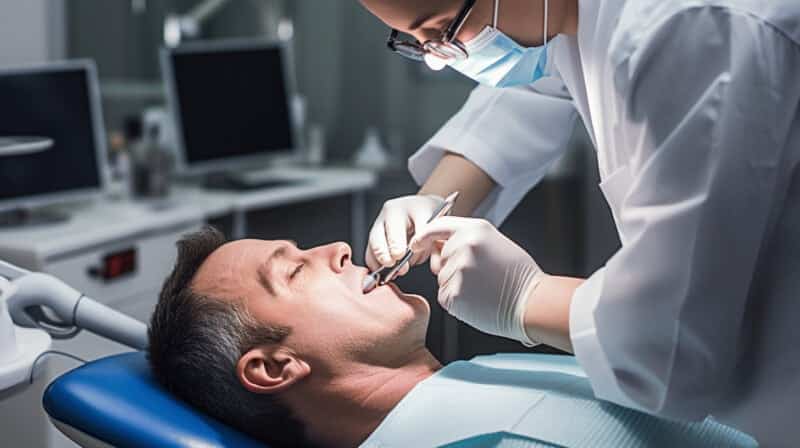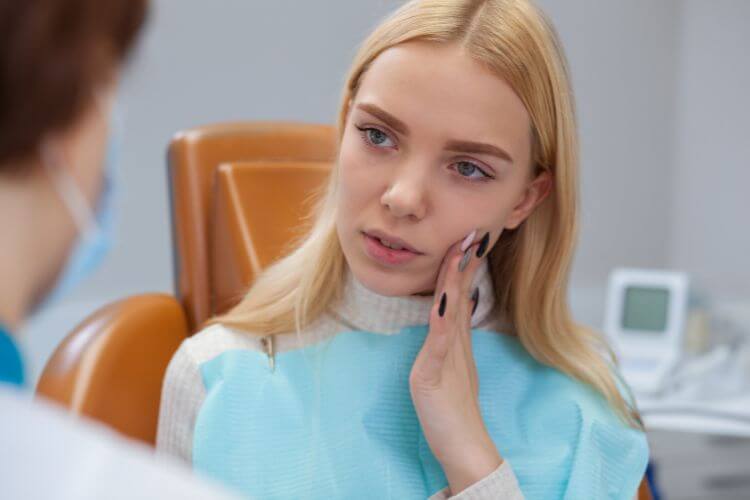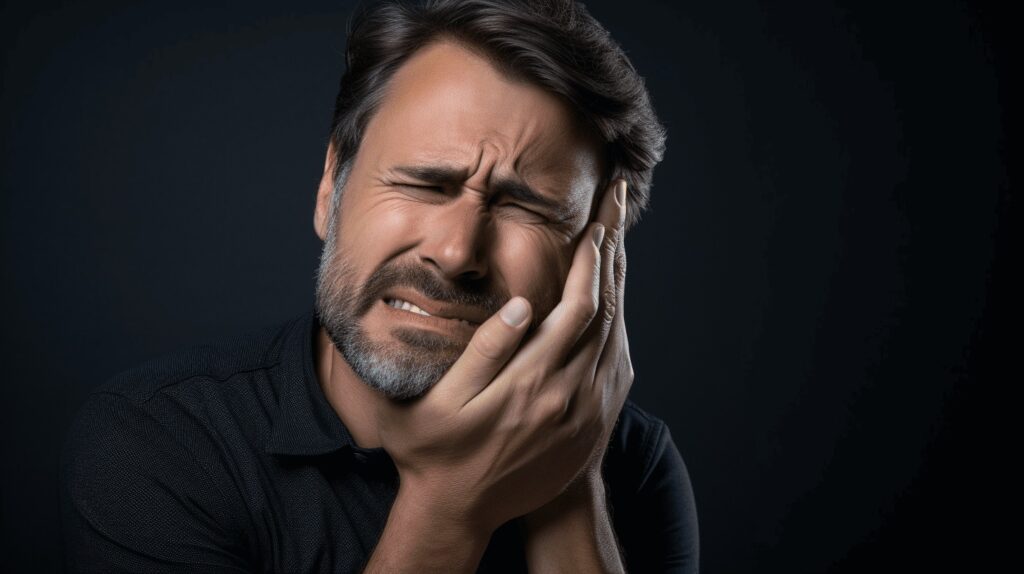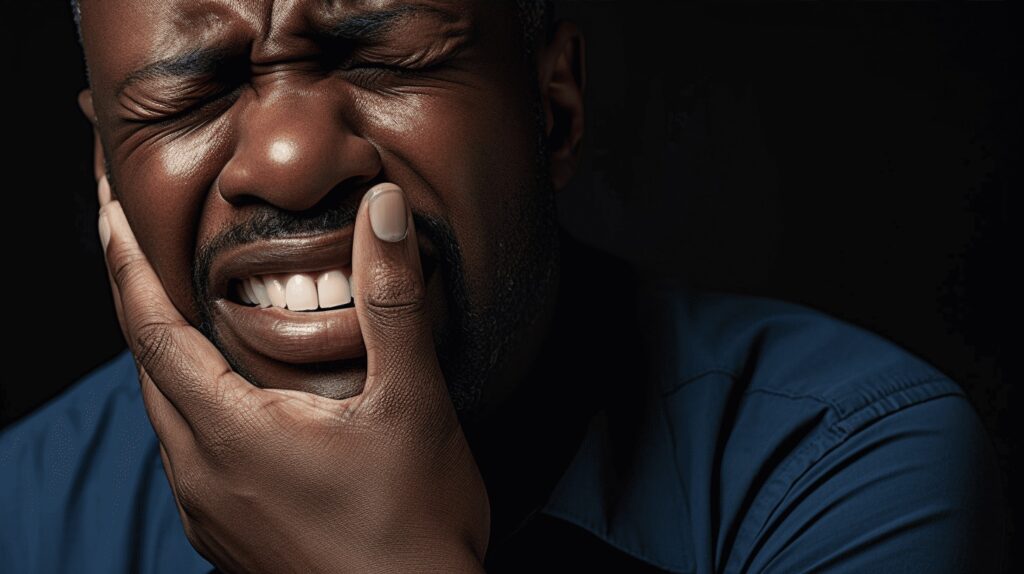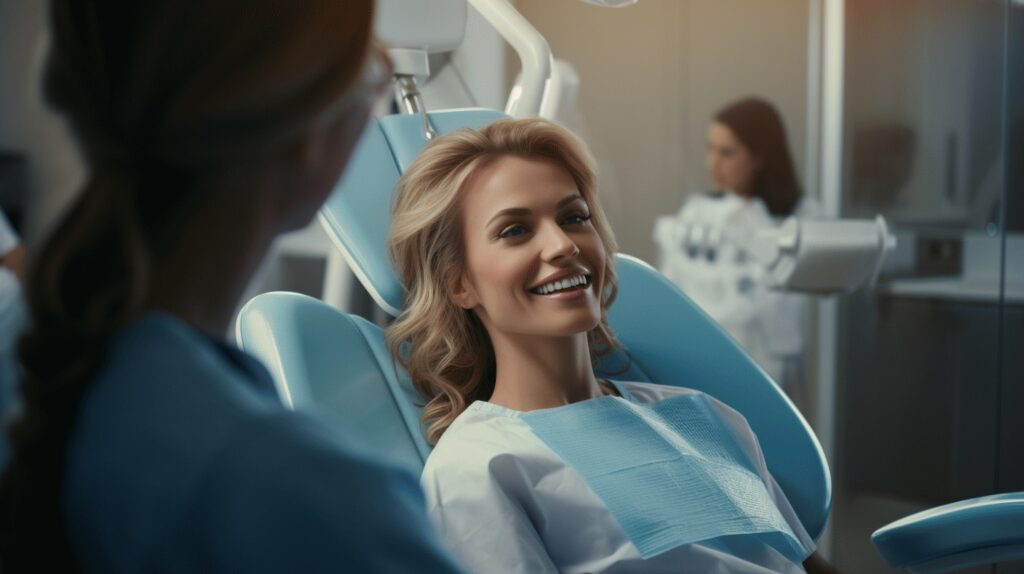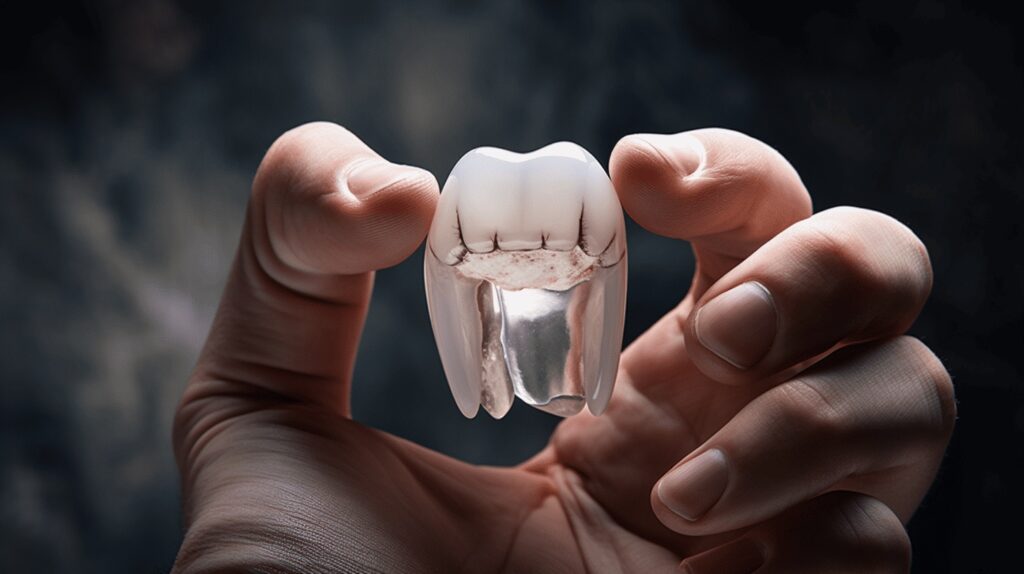Welcome to our comprehensive guide on immediate dental treatments!
As your trusted advisor on oral health, we’re here to provide essential insights about effective measures in handling dental emergencies. Whether it’s an unexpected toothache in the middle of the night or a knocked-out tooth from a sports mishap, dental emergencies can occur unexpectedly, causing distress and discomfort.
In this guide, we will be exploring the significance of good oral health, delving into preventive dental measures, assessing the prevalence and types of dental emergencies, understanding the impact of the ongoing COVID-19 pandemic on dental care, and highlighting the importance of regular dental visits.
Furthermore, we will discuss the role of prompt treatment in preserving oral health, center on dental care facilities for veterans, and share strategies for effective management of dental emergencies.
Navigating through a dental emergency can be daunting, but with the right knowledge and preparation, you have the power to make the best decisions for your oral health. Let’s journey together into this crucial topic; we believe you’ll find the information contained herein not only useful but enlightening.
Table of Contents
Significance of Good Oral Health
Are you aware how crucial maintaining healthy teeth and gums is? Well, let’s just say, you might want to reschedule that dentist’s appointment you’ve been putting off. Studies show that a whopping 87-86% of adults have healthy teeth and gums, indicative of the importance placed on good oral health. So, let’s take a deep dive into why prioritizing our oral health can make such a significant difference.
Looking at more global data from the World Health Organization, startling figures reveal that over half of all adults in their European Region experienced a major oral disease in 2019. This was the highest prevalence observed worldwide! 🌍 These oral health problems can extend beyond the mouth, impacting your overall well-being, including health issues related to the mind and heart.
- Oral Health and General Health: The condition of your teeth and gums can be a telltale sign of your overall health. The mouth often acts as the entry point for both helpful nutrients and harmful bacteria. When you maintain good oral health, you help to prevent the entry of bacteria which could lead to diseases.
- Boosting Self Esteem and Confidence: A healthy, gleaming smile is often equated with vitality, happiness, and confidence. On the flipside, oral health issues can lead to reduced self-esteem and lower confidence levels.
- Preventing Oral Diseases: Good oral health is instrumental in treating and preventing various oral diseases. This includes bad breath, tooth decay, gum disease, and even oral cancer.
Dental Treatments
We know, all this can feel a little overwhelming. But rest assured, looking after your oral health doesn’t have to come with a fancy manual or complex routines. There are simple lifestyle changes you can adopt to keep your teeth and gums in peak condition. Our page on Good Oral Health Practices provides manageable tips and techniques which you can incorporate into your daily life.
Remember, your teeth and gums are like the superheroes of your mouth, fighting against the villains – cavities, gum disease, and other pesky oral health problems. And just like any superheroes, they need nourishment and care to stay strong and unbeaten.
Investing time in your oral health today will reap dividends tomorrow, and those dividends could be in the form of a dazzling smile, or even better, enhanced overall health. Embrace the power of good oral health, and let’s make the world a healthier place, one smile at a time. 😃
Prevention and its Importance
Let’s shine a light on something we often overlook – Prevention. It’s a crucial aspect of overall health, with a particular spotlight on dental health. It’s not just about brushing twice a day and flossing. While you’ve likely heard it countless times, preventive care is a jewel worth cherishing in the world of dentistry. Why, you ask? Let’s dive in!
Preventive Dental Services
Everyone cherishes a bright, flawless smile. It accentuates your self-esteem and mirrors your overall wellbeing. Here’s the crux of the story – the health of your pearly whites often relies on preventive dental services. Better prevention equates to fewer treatments, and ultimately, a healthier, more confident you.
- Pediatric sealants: These are a champion preventive service, mainly offered to children, and they’ve recorded some impressive performance measures. They act as a barrier to ‘seal out’ decay, offering long-term protection. Isn’t it delightful, keeping problems at bay from the beginning?
- Regular check-ups: Ah! The magic of bi-annual dental visits! This preventive service helps nip problems in the bud, keeping major dental emergencies at arm’s length – it’s indeed a stitch in time that saves nine.
Preventive Dentistry
Let’s get better acquainted with this superhero in the realm of dental health: Preventive Dentistry. It doesn’t merely emphasize treatments – it’s all about prevention. The fact is, preventive dentistry serves as your best bet in steering clear of dental emergencies. It’s a significant aspect that assists you in keeping your oral health in check, ensuring fewer visitations to the dental chair. How relieving that sounds!
Now, what you might ask is the Role of Preventative Dentistry in oral health? Simple: It’s your lifeline. From regular dental check-ups to essential educational tips, preventive dentistry equips you with the necessary arsenal to combat oral health problems.
Prevention isn’t just pivotal, it’s the golden key to oral health – the importance can’t be overstated! Never underestimate the power of preventive dentistry and the preventive services it offers. It’s adapted to suit everyone, whether young or old, ensuring we all keep flashing our adorable, healthy smiles. So, let’s pledge to acknowledge the significance of prevention in light of our oral health!
Stay tuned for more discussions about this unsung hero of dentistry – Prevention.
Prevalence of Dental Emergencies
Imagine, if you will, schools eerily silent while the sound of a bustling business district fades away. You’d think it was a ghost town, wouldn’t you? But it isn’t. In reality, these are the scenes played out each year due to the high prevalence of dental emergencies!
Here’s a shocker for you: It’s estimated that over 34 million school hours are lost annually because of kids needing unplanned dental care. Can you comprehend the magnitude of disruption this causes for families? And businesses aren’t immune either; an estimated $45 billion in productivity is lost every year due to these unforeseen appointments. Phew! Isn’t it high time we start taking better care of our molars?
But you may wonder: just how rampant are these issues? Brace yourself for some gravity-defining numbers! It’s reported that nearly half of the children between the ages 2 and 19 have untreated or restored dental caries. That’s almost every second child! This showcases the substantial need for immediate dental treatments. 😔
Dental Treatments
Moreover, our emergency rooms are overwhelmed; they receive approximately 2.4 million non-traumatic dental condition visits annually in the United States alone. And before you think it’s just kids filling up these numbers, let me correct you right there. It’s an all-ages issue – be it tiny tots, young adults, mamas and papas, or even our beloved seniors.
Now, here’s some essential information you should be aware of – there’s a significant divide when it comes to children’s oral health. Statistics show that racial and ethnic disparities are prominent, bringing to light an underlying problem. It’s not just about brushing and flossing folks! Your zip code seems to play a part too. With data published by 22 states highlighting this very issue, the conversation around equitable access to oral healthcare needs a megaphone. 📣
Nevertheless, knowledge is power, and awareness is the first step towards change. Remember, the capacity to tackle these dental emergencies isn’t just about keeping that sparkling smile intact; it’s a step towards leading healthier, disruption-free lives. Let’s promise to start taking oral health more seriously, shall we? After all, every tooth in a man’s head is more valuable than a diamond. 😁💎
Impact of Covid-19 on Dental Care
In the face of the Covid-19 pandemic that rocked the globe, the impact it had on various sectors of our lives remains indelible. One often overlooked, yet significantly affected area is dental care. We found ourselves in a situation where an astounding 198,000 dental offices worldwide had to shut down for indefinite periods. This closure impacted roughly 63% of regular dental care, a fact that raises serious concern about the future wellbeing of oral health.
Dental practitioners were thrust into a new world where physical contact and close proximity to patients, intrinsic to their profession, became heavily fraught with challenges. Consequently, the widespread closure of dental offices meant delayed dental procedures and routine checkups, leading to potential oral health problems. Here’s why:
- Oral infections and diseases that could have been avoided or mitigated through regular dental appointments weren’t flagged.
- Dental emergencies increased, subjecting patients to possible infection risks in hospital emergency rooms.
- Hygiene practices witnessed a significant decline, due to lack of regular professional oral cleanups.
- Groundbreaking dental treatments and research were momentarily halted, impacting the overall progress of dental medicine.
Immediate Dental Treatments – Immediate Dental Treatments
The pandemic has nudged us to rethink traditional practices and seek innovative solutions. With the surge in telemedicine, many dental professionals have adopted teledentistry, providing remote consultations and guidance. Patients are now getting acquainted with virtual dental check-ups, a practice unimaginable a few years back.
This doesn’t mean the importance of physical dental check-ups has dwindled; on the contrary, this unprecedented situation shines a spotlight on the crucial role regular dental care plays in our overall health. These turn of events have no doubt prompted us to acknowledge the essential nature of accessible oral healthcare.
All in all, the impact of Covid-19 on dental care has substantial lessons for us. It has taught us adaptability in the face of adversity, strengthened the importance of oral health, and most importantly, transformed dental care delivery. We remain hopeful that post-pandemic, these innovations will continue to flourish, letting us strike a balance between physical and virtual dental experiences. In the grand scheme of things, the pandemic might just be the challenge that propels the field of dental care into an even brighter future.
Importance of Regular Dental Visits
Now, we all know that a radiant smile can light up a room, right? 😃 Not only that, but it’s also a clear indicator of the health and well-being of our teeth. But, unfortunately, a significant number of adults out there do not prioritize the care and health of their teeth 💔. Shockingly, about 42% of adults admit to not visiting the dentist regularly.
Embarking on the journey to better dental health can appear daunting, but there’s no need to be perturbed as it isn’t as complicated as it seems. Above all, taking this step could end up saving you ample time, resources and discomfort in the future. How, you may ask? 💭 Regular dental visits are the foundation of preventative dentistry– a sure-fire way to keep those pearly whites in tip-top shape.
Regular dental checkups serve several purposes, such as:
- Monitoring the condition of your teeth and gums, key to catching early signs of gum disease, cavities, and other oral health issues that can cause grave problems if left untreated. 🏥
- Providing a professional clean to remove plaque and tartar buildup that regular brushing and flossing might miss. This practice goes a long way to prevent tooth decay and gum disease. A win-win, right? 🥇
- Offering consultations on how to improve your oral hygiene habits. As the saying goes, prevention is better than cure.
I know all this can sound overwhelming, but the benefits and importance of regular visits are clear as day:
“Regular dental visits are not only good for keeping your smile bright; they also have a significant impact on your overall health.” 💖
Isn’t it about time we start valuing our oral health as much as we do our overall well-being? After all, they’re intertwined. The secret weapon to a healthier, brighter and more confident smile is in your hands– regular dental checkups. 🌟
Remember, a journey of a thousand miles begins with a single step, and committing to regular dental visits is that crucial first step towards achieving a lifetime of healthy smiles. It’s time to say bye to dental woes and hi to happy, healthy smiles! 😎 💪 So, why wait any longer? Commit to your oral health today, it’s never too late to start.
Role of Prompt Treatment
Imagine this scenario: you’re enjoying an invigorating game of basketball with friends, and all of a sudden – whack! You take an unexpected elbow to the mouth, and you immediately feel that a tooth is loose, perhaps even knocked out. What do you do next? 😵
The role of prompt treatment cannot be overstated in dental emergencies like these. It holds the key to rectifying the situation before it escalates into a bigger problem. We mean it when we say that every second counts. 💨 Let’s show you why.
Broadly speaking, dental emergencies usually involve acute pain, swelling, bleeding, or loss of tooth structure. But what makes them truly an ’emergency’ is their potential to affect function and quality of life fundamentally.
To bring it into perspective, consider this crucial fact – every 15 seconds, there’s someone visiting a hospital emergency department due to dental conditions. This statistic underscores the urgency required in seeking dental aid.
Immediate Dental Treatments
Specifically, when it comes to knocked-out teeth, immediate action is crucial. These incidents are one of the most severe dental emergencies that require expeditious attention. 🦷 Why’s that? Well, quick and appropriate action could mean the difference between saving or losing the tooth permanently.
For that reason, it’s critical to seek immediate treatment in such events. For prompt treatment ensures rapid pain relief, prevents further damage and complications, and improves the chances of saving the tooth. The sooner you receive professional dental attention, the better the prognosis for your dental health. 😄
Indeed, in the world of dentistry, time is of the essence. So be proactive in looking after your oral health and protect those pearly whites you style so proudly. And remember – if, unfortunately, you find yourself facing a dental crisis, don’t waste time. Seek professional help promptly. 🏥 Because, in dental emergencies, treating the problem promptly is not just a recommendation; it’s a necessity. The smile you save with quick action could well be your own! 😁
Dental Care for Veterans – Immediate Dental Treatments
Ah, the feel of fresh breath and a bright smile! We all admire it, right? Dental health is critical for everyone, but it holds unique significance for our heroes – the veterans. These brave-hearts sacrificed a large part of their lives for our safety, and something as essential as dental care should never be out of their reach.
In the fiscal year 2023, over 690,000 veterans received dental care. 🙌 These numbers aren’t just digits; they represent the strengths of programs focused on comprehensive dental care for veterans, depicting the magnitude of awareness, accessibility, and impact.
Why is Dental Care Important for Veterans?
Dental hygiene is much more than a shiny smile. It is a gateway to overall health. Here’s why this aspect of healthcare holds such high stakes for veterans:
- Preventing Dental Diseases: Veterans, particularly those from older generations, may have neglected oral health during their service years. Now, they are more susceptible to dental diseases such as gum inflammation, tooth decay, and even oral cancer.
- Impact on Overall Health: Poor oral health can lead to or exacerbate serious health conditions. For instance, gum disease is linked to heart disease, respiratory infections, and worsened diabetes.
- Nutrition and Digestion: A healthy mouth allows veterans to consume a balanced diet, which is a vital element of maintaining physical health.
- Mental Health: Let’s not forget the confidence that a healthy smile can bring, boosting mental health and self-esteem.
But there are challenges to overcome. Accessibility and affordability become roadblocks for many veterans. It’s crucial to bridge these gaps to ensure every veteran receives the oral care they deserve.
As we say this, let’s not forget the fantastic work already being done. In 2023 alone, over 690,000 veterans have accessed dental care, a testament to the commitment to improving healthcare for our veterans. That’s a reason for us to cheer, but it’s also a call to action – to do better, reach further, and make sure no veteran is left behind when it comes to their dental health.
Let’s continue championing the cause of veteran dental health, raising awareness, growing resources, and expanding access. Remember, a veteran’s smile isn’t just a sign of good oral hygiene; it’s a token of the respect and care we, as a society, owe them.
Management of Dental Emergencies
When it comes to your dental practice, emergencies are inevitably going to occur; this is just a part of the job. But the good news? As a dental professional, you are fully equipped 🧰 to handle anything that comes your way—that means even the most sudden, unexpected dental issues. The key to managing these situations with confidence and ease is to make sure you’re up-to-date on the latest guidelines 💡 and continuously participating in professional training.
Let’s delve a little into this crucial aspect of your profession that helps you optimize patient care even in high-stress situations. 😊
Guidelines and Training for Dental Professionals
Knowing how to handle dental emergencies efficiently and effectively can make a huge difference to your patients, your practice, and ultimately, your peace of mind. Having a thorough understanding of how to respond correctly can even mean the difference between saving and losing a patient’s tooth.
From handling severe tooth pain, a knocked-out tooth, abscessed gums, to performing complex surgeries, there are comprehensive guidelines and a heap of training opportunities available that can elevate your skills. So, make sure to take advantage of these crucial resources. 📚
Immediate Dental Treatments
Here’s what you can expect from these guidelines and training programs:
- Current Best Practices: Stay informed about the most recent dental developments, techniques, and technology. 🦷
- Hands-On Training: Master your skills with practical training that creates real-life emergency scenarios. 👩⚕️👨⚕️
- Patient Management: Learn the best methods of managing patient anxiety and comfort levels.
- Legal Compliance: Ensure your practice is always compliant with dental law and regulations.
Now that’s not all there is to it, friends. The ability to handle dental emergencies doesn’t just stop at a professional’s training. There’s also an essential role played by guidelines designed to help you manage these situations.
But how do you use these guidelines effectively? Where do you start, and what considerations should you keep in mind? Consider these questions as a teaser for our in-depth guide on how to handle dental emergencies that details the protocols you should follow in different situations.
By the end of it, you’ll feel confident managing dental emergencies, ensuring that your patients—no matter what situation they may be in—are always in safe hands at your practice. 👍
Optimal dental care extends beyond routine check-ups and cleanings. It entails being prepared for dental crises and knowing how to respond effectively and promptly. With the right guidelines and training, you’ll be an expert at navigating the rough waves of dental emergencies, providing your patients with the best care possible even in the toughest circumstances. Now, who wouldn’t want that superpower? 😁💪
Conclusion – Immediate Dental Treatments
Our goal at Wilshire Smile Studio is to empower our patients with knowledge and effective solutions, helping them maintain stellar oral health and manage dental emergencies effectively. Whether you need preventive care to maintain a radiant smile, seek immediate attention for a dental emergency, or wish to explore the revolutionary benefits of cosmetic dentistry, our dedicated team is here to support and guide you every step of the way Immediate Dental Treatments.
Thanks to our commitment to exceptional dental care and customer service, the journey to your perfect smile is just a call away. Remember, prioritizing oral health today can save you from the discomfort of dental emergencies tomorrow.
Book your free consultation with us online or call (323) DENTIST (323-336-8478) today.
Frequently Asked Questions
1. What are some common dental emergencies that require immediate treatment?
Some common dental emergencies that require immediate treatment include severe toothache, knocked-out tooth, broken tooth, abscessed tooth, and jaw injuries Immediate Dental Treatments.
2. What should I do if I have a severe toothache?
If you have a severe toothache, you should rinse your mouth with warm saltwater, floss to remove any trapped food particles, and take over-the-counter pain relievers. It is important to contact your dentist for an immediate appointment.
3. What should I do if my tooth gets knocked out?
If your tooth gets knocked out, handle it by the crown (the chewing surface), gently rinse it with water, and try to reinsert it into the socket. If that’s not possible, place it in a container of milk or saliva and seek immediate dental assistance.
4. What if I have a broken tooth?
If you have a broken tooth, rinse your mouth with warm saltwater, apply a cold compress to reduce swelling, and contact your dentist right away. They will assess the severity of the fracture and recommend appropriate treatment Immediate Dental Treatments.
5. What should I do in case of a jaw injury?
In case of a jaw injury, apply a cold compress to reduce swelling and visit the emergency room or an oral maxillofacial surgeon immediately. They will evaluate the injury and provide suitable treatment.


